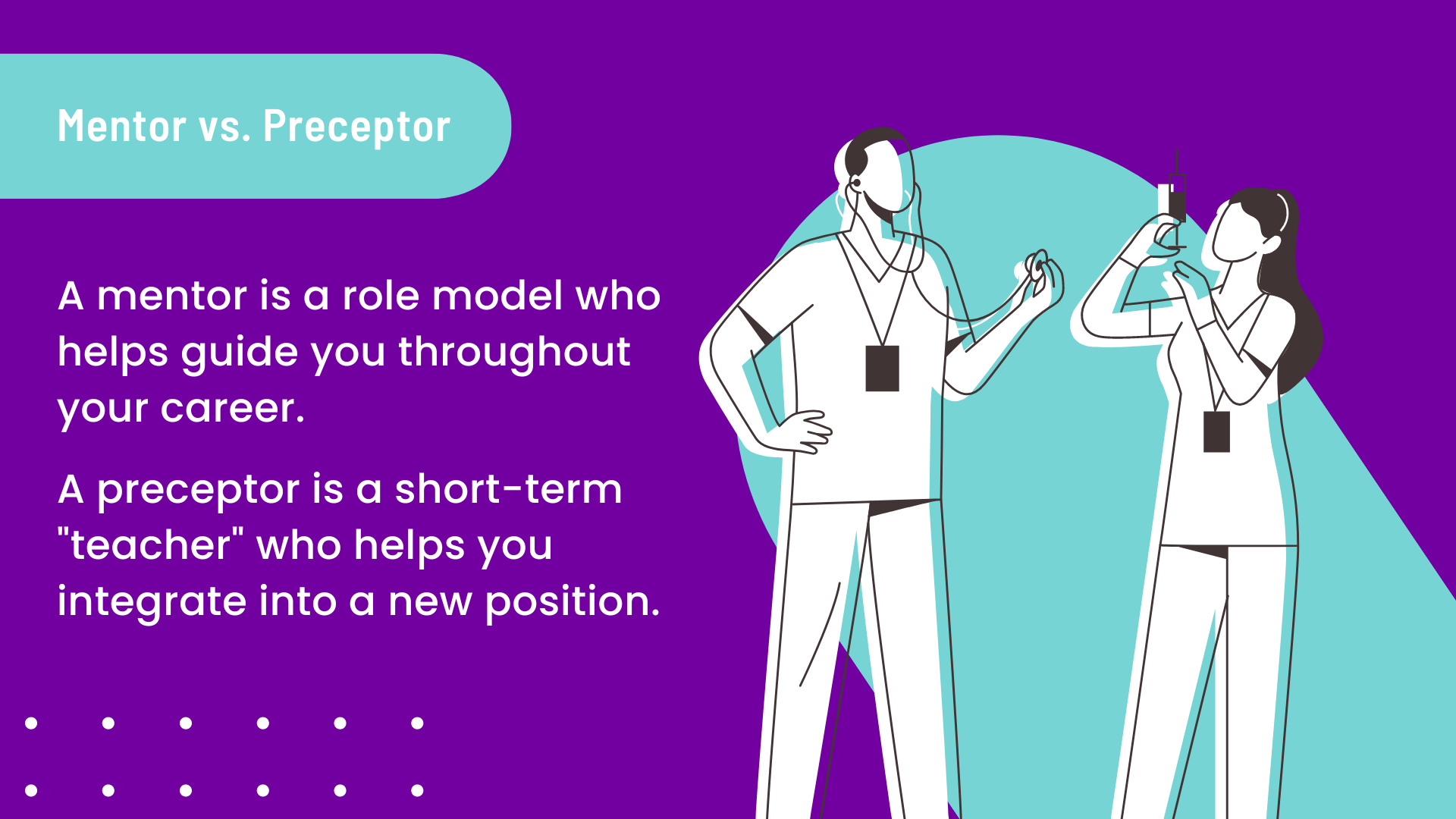What to Do When Your Mentor Isn’t a Good Fit

Are you participating in a mentorship? Studies show that having a mentor increases job satisfaction, decreases burnout, and opens doors to career opportunities and promotions. Who wouldn't want a nurse mentor who provides support, goes out for coffee, and serves as a personal cheerleader?
If only every mentorship were that positive! But what if your mentorship isn't meeting your goals and leaves you feeling bummed out? In other words, your mentor isn't a good fit.
Sound familiar? You're not alone. Mentorships fail all the time and for several reasons. Mentors may be incompetent, lack adequate training, or are too busy. However, this doesn't mean you should abandon a mentorship program. Instead, take a step back to reconsider your course of action.
After all, nursing is challenging, and having a mentor increases your chances of a successful career.

8 Reasons Your Mentorship Might Fail
There are many reasons why a mentorship might fail, but you shouldn't be too quick to label them all toxic. You can attribute some issues to typical relationship troubles, but others present a valid concern, including these eight mentor-related issues:
1. Lack of Commitment: A successful mentorship depends heavily on commitment and trust. Mentors who miss meetings or continuously reschedule are defaulting on their relationship agreement with you. There could be many underlying issues, such as a change in life circumstances, they didn't realize the level of commitment needed, or got too busy.
2. Controlling Behavior: Some mentors think the mentee is an extension of themselves and have a "my way or the highway" mentality. This outlook is a toxic mindset and incompatible with a successful mentorship.
3. Personality Conflict: We all connect better with some people than others. Mentorship is a long-term relationship. If you're not enjoying the relationship, you should move on.
4. Limited Expertise: Nurse mentors guide your understanding of nursing, help you develop skills, and facilitate knowledge transfer. A nurse lacking the appropriate expertise will not benefit your personal and professional growth.
5. Trust Breaker: Did your mentor disclose personal information at a board meeting? It's unacceptable for a mentor to divulge confidential information you have shared.
6. Self-Serving Interests: Your mentor should be someone other than your supervisor or manager because this creates a conflict of interest. Their primary concern of running the nursing unit may conflict with your professional goals. An example would be asking you to fill in a nursing shortage when you need to prepare for a presentation or exam.
7. Poor Interpersonal Skills: Mentoring involves active listening, clear communication, self-awareness, and emotional regulation. If you cannot establish an emotional connection with your mentor, assess if poor interpersonal skills are the issue.
8. No Sense of Humor: Life is boring without humor. Is your mentor willing to laugh with you and see the humorous side of mistakes and misunderstandings?
Don't Blame Your Mentor for Everything
A mentorship consists of at least two people. You should not blame every problem on the mentor. Is it possible that you might be at fault? Here are some issues to consider:
Life Happens: Unexpected events can derail the best-laid plans and change your focus. Be honest with your mentor, thank them for their coaching, and then take a step back to regroup.
Changed Goals: You may begin a mentorship, then realize you have chosen the wrong specialty or career. It takes courage to withdraw, but growth and change are a healthy part of your career path.
Needy Behavior: Perform a self-assessment. Have you been asking questions that you could find out from another source? Are your goals realistic? Is it possible that the discomfort you sense stems from you?
Mentorship Style: Mentorships can be formal or informal, supported and encouraged by your healthcare organization (or not), and conducted in groups or one-on-one. You may also have several mentors, each concentrating on a specific area you wish to grow in. Consider that your angst might originate in the style of mentorship.
7 Tips for Breaking Up With Your Mentor
Breakups are awkward and uncomfortable, but avoiding troubling issues doesn't improve the problem. When you know deep down that the relationship with your current mentor can't continue, you must create an exit plan. Perhaps these seven tips can calm your stomach butterflies:
1. Don't let your angst build until you suddenly erupt. Write down what is bothering you. Keep focused, and don't drudge up every complaint. Continue to revise your plan until it is clear and concise.
2. Ask for a meeting with your mentor. Take your notes with you to keep you on task. Hold your head high and leave with honor and respect. Unless you cannot keep your emotions under control, a physical meeting is better than sending a letter.
3. Remove any emotion from your complaints. Don't use words that express negative feelings, such as upset, angry, sad, or hate. Keep your language and tone professional.
4. Be honest about the issues that concern you. Consider your faults and own up to them.
5. Begin the conversation with what went well with the mentorship. Thank your mentor for taking on the task of mentoring. Thank them that they were willing to meet with you. Dig deep for nice things to say, even if only to thank them for coffee.
6. Meet in a public place with some privacy for your conversation. You can walk away if you need to.
7. Be ready for an emotional reaction. Your mentor may be relieved that you recognized the issues, disgusted that you wasted their time, or angry that you won't submit to their control.
How to Find a More Suitable Mentor
The most important thing is to recognize the power of mentoring and not give up looking for a mentor who's a better fit. Here are some positive ways to go forward:
Take a personality compatibility test. Know your personality type and look for a compatible mentor.
Try a third-party match. Ask someone who knows you well to suggest a mentor from their acquaintances. People who know you both will often make a better match.
Suggest a mentor-finding event (think speed dating) if you work for a large organization that supports mentorship so potential mentors and mentees can meet before committing.
Ask a potential mentor for their bio or look for them on LinkedIn so you can learn about them before scheduling a meeting.
Mentorship can empower you to have a successful career if your mentor is a good fit. Accept that there are people you cannot get along with, but don't let it destroy your chance for mentoring. Instead, 'break up with your mentor' and carefully choose a new one.